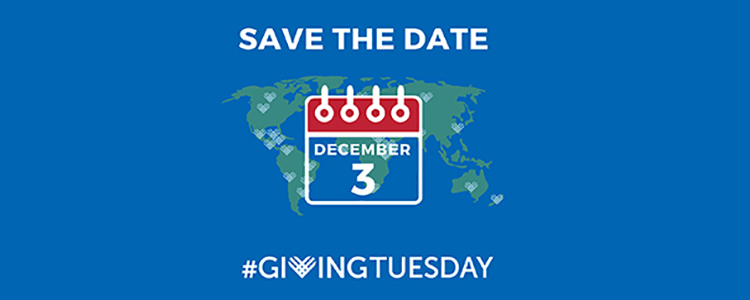Find consumer tips on everything from credit to home safety to travelling on a budget and so much more!
Help to Policyholders Impacted by Severe Weather in Tennessee and Kentucky
MetLife Auto & Home’s claim organization stands ready to assist their customers impacted by severe weather in Kentucky and Tennessee. As of March 3, there have been reports of at least 22 deaths and heavy damage, particularly in the Nashville area.
Resources Available
MetLife’s National Catastrophe Response Team is ready to handle any incoming claims, and their claim personnel are prepared to:
- Help customers secure shelter, as needed.
- Guide customers through temporary repairs.
- Issue checks for immediate expenses.
- Promptly compensate customers for any damage to property.
Filing a Property Claim
If you need to file a property claim:
- Phone: 800-854-6011
- Fax: 866-743-1546. OR
- Email: MET_CAT@metlife.com
Catastrophe Response Vehicle Updates
Updates on CAT vehicle locations will be provided as available.
Tips for Staying Safe
These are other resources that can help you stay safe! Please share these links with your family and friends:
- On Facebook - 30 Second Advance Planning Video - 3 quick tips.
- On Twitter- #Hurricane evacuation prep & simple tips.
- Hurricane Safety - Staying safe and what to pack in your emergency kit.
This important update was brought to you by Union Plus Auto and Home Insurance. MetLife Auto & Home® lets union members compare and save on home and auto insurance.
Call 855-666-5797 and mention your discount code: DJ7.

MetLife Auto & Home is a brand of Metropolitan Property and Casualty Insurance Company and its affiliates, Warwick, RI.
© 2018 MetLife Auto & Home | 700 Quaker Lane, Warwick, RI 02886

Resources are available to MetLife Auto and Home policyholders who have been impacted by the severe weather in Tennessee and Kentucky.
Leap Day = Three-day Weekends and an Extra Special Taco Tuesday
Three-day Weekends and an Extra Special Taco Tuesday? We're here for it!
Thank you, Leap Year, for all of these 2020 three-day weekends and Friday fun day holidays!
Valentine's Day is on Friday, February 14
Lean into this unofficial three-day weekend — make plans for a quick romantic getaway, have a proper date night (without a worknight curfew) or head out for a Gal-entine's Day date with your best girlfriends!
Cinco de Mayo is on (Taco) Tuesday, May 5
Can you think of a better way to enjoy Cinco de Mayo than on Taco Tuesday? Best Tuesday ever!
The Independence Day on a Saturday BUT observed on Friday, July 3
Celebrate America's birthday, TWICE! Many companies and even the federal government close their offices on Friday, July 3 in observance of Independence Day. Happy birthday, America…a day early!
Halloween is on a Saturday, October 31
No weeknight trick-or-treating this year. Kids and parents alike can enjoy a spooky Saturday, filled with ghouls, goblins and candy!
Christmas Day is on Friday, December 25
Merry Christmas! This year we'll get a three-day weekend to celebrate with family and friends. Merry, merry!
New Year's Day is Friday, January 1, 2021
Kick off 2021 with a three-day weekend. Can you think of a better way to ring in the new year? We can't!

It's Leap Year — so there's a 29th day in February AND it's created lots of three-day holiday weekends this year…and even an extra fun, Taco Tuesday!
Safe Driving in Severe Weather
Be prepared for these five conditions:
Fog
The key is to take it slowly; this means avoiding the highway, if you can. Driving slowly gives you more time to react to other drivers, and vice versa.
- Use your low-beam headlights — high beams simply reflect the fog, making it difficult to see lane dividers and shoulders.
- Keep your windows open. This helps you hear other drivers you might not see.
Flood
Over half of flood-related deaths occur when cars are driven into floodwaters. Floodwaters move quickly, and drivers often underestimate the current's force. If you approach a flooded roadway, the safest choice is to find an alternate route.
Hail
Avoid stopping on the side of the road or beneath an overpass, which can contribute to dangerous traffic jams.
- Pull into the first parking lot you see.
- Stay in your car but move toward the center of the vehicle in case the hail shatters a window.
- Take cover under a blanket or coat.
Straight-line Winds
Often accompanying thunderstorms, straight-line winds equate with tornadoes in strength.
- Leaving your car might not be an option. Instead, keep both hands on the wheel and pull over to a low-lying area.
- Turn on your hazard lights and wait for the wind to subside.
Tornado
Don't try to outrun the storm. Tornadoes move quickly and can change directions unexpectedly.
- Exit your vehicle and seek shelter. Head straight for the basement or a bathroom of a nearby building. If no buildings are nearby, look for treeless, low-lying land. Crouch and cover your head as you wait for the storm to pass.
Don't Forget — Keep Your Car Ready
It's always good to be prepared. Store basic first aid supplies in your car in case of injury. Keep a blanket on hand so it can shield you from shattered glass and falling debris. If the forecast looks grim and you can't stay home, make sure your phone is charged and someone is aware of your travel plans.
These tips were brought to you by Union Plus Auto and Home Insurance. Drivers have saved an average of 23%* a year on their auto insurance when they switched to MetLife Auto & Home®.
Call 855-666-5797 and mention your discount code: DJ7.

*Savings are based on our 2019 countrywide research of new call center customers' annual average savings on auto insurance in 2018. Statistics do not reflect sales of the product sold on MetLife Auto &Home MyDirect® or products of other insurance companies.
MetLife Auto & Home is a brand of Metropolitan Property and Casualty Insurance Company and its affiliates: Economy Fire & Casualty Company, Economy Premier Assurance Company, Economy Preferred Insurance Company, Metropolitan Casualty Insurance Company, Metropolitan Direct Property and Casualty Insurance Company, Metropolitan General Insurance Company, Metropolitan Group Property and Casualty Insurance Company, and Metropolitan Lloyds Insurance Company of Texas, all with administrative home offices at 700 Quaker Lane, Warwick, RI 02886. Coverage, rates, discounts, and policy features vary by state and product, and are available in most states to those who qualify. Policies have exclusions, limitations, and terms under which the policy may be continued in force or discontinued. For costs and complete details of coverage, contact your local MetLife Auto & Home representative or the company.
L0120000712[exp0123][All States][DC]

Spring is just around the corner, and while we're all happy for the weather to warm up, the change in season often brings unpredictable weather patterns and severe weather. These simple tips can help you stay safer on the road.
Is Debt Settlement Right for You?
Debt settlement could be the answer to your debt stress if you're dealing with credit cards, personal loans, and other kinds of unsecured debt. But it's important to understand what it is and how it works. Learn the ins and outs of debt settlement so that you can decide if this debt relief option is right for you:
What Is Debt Settlement?
Debt settlement is a process where you or a company on your behalf, negotiates with your creditors in effort to get them to accept less than what you owe on your debt — allowing you to reduce your debt and get out of debt faster than you would if you continued to make minimum payments.
How Does Debt Settlement Work?
Here are the steps that typically happen after you enroll:
- Build — Every month, you make a deposit into an FDIC-insured savings account you own and control.
- Negotiate — Once you save enough in your account, the debt settlement company negotiates with each of your creditors to settle/resolve your debt.
- Settle — Every time your debt settlement company and your creditors reach a settlement agreement, the debt settlement company contacts you to approve the settlement.
- Freedom — After the full settlement amounts are paid on all your accounts, your debt is behind you!
In return for negotiating debt on your behalf, debt settlement companies charge a fee that typically ranges from 15-25% of the debt you enter into the program. But even with the fees, you could still save money by working with a debt settlement company.
Pros of Debt Settlement
With help from a debt settlement company, you could get out of debt faster and for less than you currently owe.
Debt Settlement Pros
- Reduce your total debt
- Affordable program payments
- Faster than minimum payments
Ready to take the first step?
The best way to find out if this debt relief option is right for you is by requesting a free debt evaluation with the Union Plus Debt Settlement program. When you contact our partners at Freedom Debt Relief, you'll speak with a Certified Debt Consultant who will walk you through the debt settlement process, present you with other debt relief options, and help you find the right solution for you.


If you're struggling with high debt that you can't afford to pay on your own, debt settlement could help you reduce what you owe to creditors, save money on your debt, and be debt-free faster.
Does Your Budget Need to Recover from the Holidays?
What is a Personal Loan?
- A personal loan allows you to borrow a fixed amount (generally up to $50,000) that you pay back in monthly installments over the life of the loan (typically 12-84 months).
What can I use a personal loan for?
- Consolidate debt.
- Pay for unexpected expenses.
- Finance projects and life events.
How am I approved?
- The lender decides if you qualify based on your financial history and ability to afford ongoing payments of the loan.
- Borrowers with the highest credit scores typically receive the lowest rates.
Interest Rates and Fees
- Interest rates and fees can make a big difference in how much you pay over the life of a loan, and they vary widely from lender to lender.
What's a typical interest rate?
- Rates typically range from around 5% to 36%, depending on the lender and your credit.
- Some lenders charge an origination fee to cover the cost of processing the loan and charge a pre-payment fee if you pay off your loan early.
Who Needs a Personal Loan?
- If you're looking to consolidate high-interest debt or finance a large expense.
- It makes sense when it’s less expensive than other forms of credit, and you can comfortably afford the monthly payments.
- If your situation has improved since taking out an original loan — such as your credit score improving or making more money. This could allow you to save money by taking out a new personal loan to pay off an existing loan.
- Home improvements can also be a cause for a personal loan if it adds value to your home. Using a personal loan will help avoid using your house as an asset as well as increasing credit card debt.
How Will I Benefit from a Personal Loan?
- It's one way to consolidate debt into a single payment and could allow you to pay off debt faster.
- Interest rates on personal loans are typically lower than credit cards, and most personal loans are unsecured, meaning they don't require collateral.
- Debt consolidation can help reduce missed payments to multiple creditors by consolidating to just one loan with potentially lower interest rates.
A personal loan can help you accomplish your financial and personal goals through available funds that are easy to manage based on your preferred term and loan amount. With the Union Plus® Personal Loan, you can take control of your financial future.

This content was not written by a certified financial planner or advisor. It’s intended for informational purposes only and should not be considered legal, financial, or investment advice. Consult a professional to learn what financial products are right for you.

Ring in a new year free of financial stress. Find out if a personal loan could be right for you!
Legal Checkup for the New Year
Here are some of the ways a legal plan can help you with various life events you may be planning this year:
- Getting Married
An attorney can provide assistance during the complicated process of changing your name as well as help you create or update estate planning documents for this new phase of your life. - Having a Baby
Congratulations! There are many legal issues to consider with a new baby, including updating wills and drafting estate planning documents. An attorney can be an invaluable resource for your growing family.
- Buying or Selling a Home
From the home inspection to completing deeds and signing agreements for repairs — there are numerous legal issues involved in purchasing a home. An attorney can answer any questions you have during the home buying, or selling process, as well as review and draft documents for you.
- Becoming a Caregiver
Because there are many financial and legal issues involved in being a caregiver, having access to affordable legal help can be invaluable. If you are caring for a loved one, you shouldn't have to do it alone. Your legal plan provides you with access to attorneys that can help with reviewing nursing home agreements, answering questions about Medicare and Medicaid coverage or reviewing your parent's estate planning documents as they relate to you.
We can help you find the right attorney for your situation with the Union Plus Legal Program — Premium Plan. You'll have access to a network of experienced attorneys, ready whenever you are, for a low fee of just $22.95 a month.

This original article was published by Hyatt Legal Plans, Inc., a MetLife company.

Happy New Year! A new year brings with it a fresh opportunity to get your life organized and accomplish your goals. Getting your new year started off right with important legal documents is beneficial no matter what stage of life you are in, but it's especially important if you are expecting any life changes this year.
Four Winter Safety Habits for Pet Owners
Adopt these four safety habits to keep your dogs and cats safe during winter:
- Use "Pet-Friendly" Antifreeze
Thankfully, it's well publicized that antifreeze is tempting to pets, as well as a detriment to pet health. Accidental ingestion is a big reason why pet owners are so thankful for the services of their pet insurance company every year.
Some antifreeze brands have an added bitterant to keep pets and children from ingesting it, and others, like Prestone LowTox Antifreeze Coolant, are less toxic blends. You should still be careful to keep your pet away from it, but if accidental ingestion should occur, results may not be fatal. - Bang on Your Car Hood Before Starting the Car
Feral and loose cats know how to find warm sleeping spots, often including wheel wells and warm car engines. Too often, these cats are run over or maimed by rotating fan belts or engine components. Get in the habit of always banging on the hood as you approach your car, and then honking the horn before you start it, to scare away potential heat seekers.
- Screen Your Fireplace
Cats love to use fireplace soot as cat litter but should never be allowed to get in the habit of entering an open fireplace. Secure screens or glass doors to fireplaces. Another option is laying something undesirable in front of the fireplace, like double sided tape or a "scat mat."
- Microchip or Invest in a GPS Collar
Microchipping is a great way to ensure your pet always has identification, but the chips only work if your pet is found and scanned correctly. A GPS pet tracking collar is a great backup, especially in the winter. Of course, leash safety should be of prime concern year-long, but microchips and GPS collars can really pay off if your pet becomes lost.
If a winter-related accident or illness occurs with your pet, be sure to call your veterinarian immediately so they can help you determine what to do next.
With Union Plus Pet Health Insurance, Accident Only1 plans are only $6/month for cats and $9/month for dogs. If you'd like to include illness coverage, there are comprehensive BestBenefit Accident and Illness plans2 available.

This original article was published by Pets Best Insurance Services, LLC.
1Accident Only Plans are $9/mo for dogs and $6/mo for cats. In WA state: the Accident Plan is $10/mo for dogs and $7/mo for cats.
25% Group Discount plus 5% Weblink Discount applies to BestBenefit plans; Group Discount not available in AK, HI, or TN; Weblink Discount applies to first policy term only; not available in AK, FL, HI, or TN. Additional 5% discount applied if insuring more than one pet. Maximum allowable discount is 12%.
Pet insurance coverage is offered and administered by Pets Best Insurance Services, LLC and is underwritten by American Pet Insurance Company, a New York insurance company.

It's easy to overlook common winter hazards that could put your pets at risk! Keep your pets safe during winter months by practicing these four safety habits.
#GivingTuesday — Kick Off the Season of Giving!
#GivingTuesday is the Tuesday following Thanksgiving — this year it's December 3rd.
It's a day to take a pause from holiday gift-giving to think about ways that you can give back to people in our communities — by way of a charitable donation or even in small ways like offering a kind word or a hot meal.
Some Ideas for #GivingTuesday
Here are some quick and easy ideas of how you can participate in #GivingTuesday. But don't limit yourself to this list — be creative and have your friends and family join in the fun! What better way to kick off the holiday season than with donations to worthy causes or by showing generosity to someone in your community?!
- Donate to a charitable organization. Whether it's a charitable organization or a local pet shelter — support the vulnerable in our communities that need your help.
- Buy or prepare a meal for someone in need. This can be as easy as buying a meal for someone or as personal as preparing a meal.
- Stop by your local fire or police department and say thanks. They're helping people in your community, everyday. A thank you can make their day.
- Write a letter to our troops overseas. They're all separated from their families during the holidays — show them that they're appreciated and thank them for their service.
Support Union Members with a Donation to the United Way
Support an organization that's been standing with our union families for more than 74 years. The AFL-CIO partners with the United Way to strengthen communities and support working families across the country. This long-standing partnership supports the labor community's goals of improving the health, education and financial stability of working families through initiatives, such as: job training, affordable housing, and access to healthcare.
Sharing (on Social Media) is Caring!
Be sure to inspire others by sharing your stories of generosity and support for causes that are close to your heart by using the hashtag, #GivingTuesday on social media.
As the holidays approach, it's easy to think about tangible gifts, but try using #GivingTuesday as an opportunity to show a more generous expression of yourself, through, words, deeds, and yes — donations.

Thanksgiving, Cyber Monday…#GivingTuesday! Kick off the holiday season by taking a break from traditional holiday shopping to give the gift of kindness.
Halloween Fire Safety Tips
Candy Safety
The safest option is to use battery-operated LED lights or glow sticks. However, if you use real candles:
- Keep candles at least 1 foot away from anything flammable, including decorations, curtains, and Halloween costumes.
- Make sure candles and pumpkins with candles, as well as matches and lighters, are out of reach for children and pets.
- Use long-stem matches or a utility lighter to light candles inside carved pumpkins.
- Never leave unattended candles near decorations.
Decorating Safety
- Keep all exits and pathways clear of decorations, and remove obstacles from your lawn, steps, or porch so trick-or-treaters can get to your door safely and easily.
- Set up decorations far away from open flames and heat sources, including light bulbs and space heaters.
- Opt for battery-operated or electric decorations instead of candles to light up your yard and windows.
- Never overload extension cords.
- Make sure your fire extinguisher is accessible and working.
Costume Safety
When shopping for costumes, look for:
- Costumes that don’t have billowing fabric or pieces that trail behind your child, such as capes. Costumes should fit properly and not be too loose or baggy.
- Flame-resistant fabrics and accessories such as those made from polyester or nylon.
Before you venture out trick-or-treating, teach your children to steer clear of candles and to “stop, drop, and roll” in the rare event a costume catches fire.
L1018509513[exp0921][All States][DC]


Help keep your home and children safe this trick-or-treating season. Have a fun and hazard-free holiday with these tips.
Time-Change Checklist
It's easy to forget regular home maintenance checks. So make them a part of your fall time-change routine to help protect your family and home from a host of preventable problems.
- Replace batteries in smoke and carbon monoxide detectors.
Then, test each according to the maker's instructions.
- Give light fixtures some attention.
Remove light globes and clean them to remove dust and bugs. Also consider replacing incandescent bulbs with more energy-efficient compact fluorescent lights (CFLs).
- Close off unused rooms.
Doing so could help save money on heating costs during winter and air conditioning costs in the summer. Energy.gov suggests keeping the rooms at least 55 degrees F, though, to prevent any pipes from freezing.
- Check your meds.
Get rid of expired medicines — but before you throw them in the trash, research safe, responsible disposal methods for each medication. Restock basic over-the-counter items like cough syrups, decongestants, antihistamines, and fever and pain reducers.
- Tune up appliances.
Get the best performance from your kitchen appliances by cleaning them according to the manufacturer’s directions. Use inexpensive oven and fridge/freezer thermometers to check temps and spot problems.
- Check your furnace filter.
A clogged air filter can restrict airflow and increase energy consumption between 5 and 15 percent. Depending on the type of filter your furnace uses, clean or replace it now — and at least monthly thereafter.
- Reprogram your thermostat.
Be sure to change it from summer to winter settings before you turn the heat on (and vice versa).
L0818507507[exp0721][All States][DC]


When you turn back your clocks this fall, give your house a once-over with this autumn to-do list.